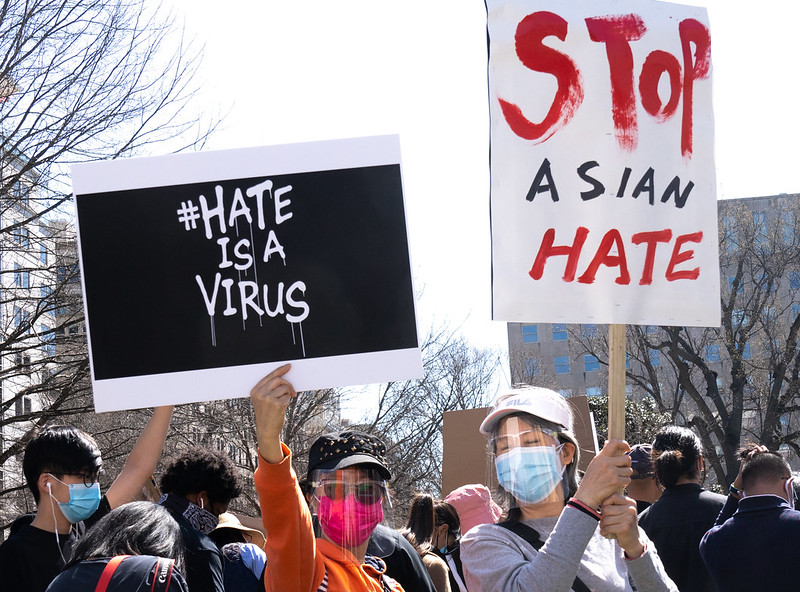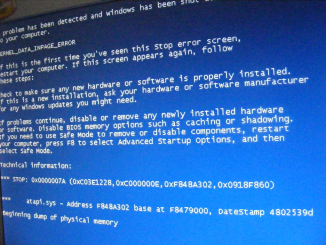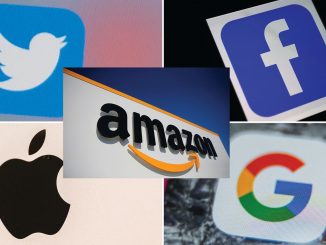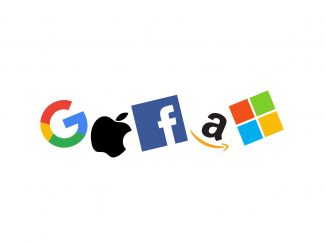

Ever since the Web 2.0 era started in the early 2000s, there has been a remarkable growth in user engagement and the digital economy worldwide. While the fast advancement in technology has benefited most of the society with a more convenient and dynamic lifestyle, the potential threats of modern technology to society and the economy have caused growing concerns among the public. The concept of “techlash has described this phenomenon”.
What is techlash?
Originally coined in The Economist (2018), the concept of “techlash” refers to the rising negative sentiments in society towards the behaviours of large technology companies, especially the “Big Five” – Google, Amazon, Facebook, Apple, and Microsoft (GAFAM) on issues such as user privacy intrusions, market distortion, and misinformation campaigns (Richard, 2018). The relentless expansion of the big five tech firms powered the US economy in 2020. The S&P index ended the year 2020 with an extraordinary 18% growth, and two-thirds of that growth was due to the increase in value of the GAFAM stocks. In the third quarter of 2020, Apple became the first company ever to record a market value of $2 trillion. With size comes power. For big techs, a simple change in algorithms can easily eliminate smaller businesses reliant on their platforms. Many viral publishers suffered from a significant loss in revenue in 2018 due to Facebook’s changing of platform algorithms. Moreover, the big techs are increasing attempts to influence politics. In 2014, Google passed Goldman Sachs as the largest spender on political donations, and by the end of 2019, it was reported by the US Center for Responsive Politics that GAFAM had spent more than $60 million in total on lobbying in the US. Consequently, the striking performance of big techs has provoked the demand to moderate these companies’ power and scrutinise the flaws in the existing regulatory policies.
“The techlash has just begun” by Axios. All rights reserved. Retrieved from: xhttps://www.youtube.com/watch?v=i97NCUMhLU4
The next part of this blog will examine the public concerns behind the techlash from a social, political, and economic aspect, particularly the lack of regulation of online racism, political misinformation, and market monopoly. Moreover, this blog will discuss the responses on techlash by governments, civil society organisations, and tech companies.
Public concerns behind techlash
Social
In recent years, digital platforms have been heavily criticised for their inadequacy in protecting individuals from violent and hateful expressions, such as discrimination and harassment based on race or ethnicity. During the COVID-19 pandemic, there was an outbreak of “Coronaracism” – a racial hatred and xenophobia sentiment targeted at individuals with east Asian appearances across various social media platforms (Karakoulaki, 2021). Unfortunately, this coronavirus-related anti-Asian content has gained significant traction because of the echo chamber effect constructed by social media algorithms. On Instagram, the hashtag #ChineseVirus has been used more than 66000 times, and there is no content warning on these tagged posts that prevent users from potential disturbance. Instead, there is only a health warning that advises users to check official sources for information on COVID-19, and the users can access the tagged posts easily. Thus, the algorithmically driven search on social media can manipulate the visibility of inflammatory content to fuel racial bias in real life.

Political
After the Facebook–Cambridge Analytica data scandal in 2016, the big techs’ abuse of user data to manipulate political campaigns and disseminate misinformation has become a heated issue. In the aftermath of the 2016 US presidential election, by New York Times (2018) reported that Donald Trump’s campaign team employed Cambridge Analytica, a consulting company, to harvest raw data from more than 80 million Facebook profiles, and then utilised the data to send tailored advertising to individual voters in an attempt to manipulate the election (Isaak & Hanna, 2018). Scholars (Lomas, 2019; Napoli, 2018) have pointed out that the Cambridge Analytica scandal symbolised that the digital privacy intrusion is damaging the functioning of Western democracy. Overall, cases like the Cambridge Analytica scandal are urging the government to impose more stringent regulations on tech firms in cyber security.

Economic
Large technology companies’ unchecked power and influence have damaged the economy because of their contribution to market monopolisation. Companies such as GAFAM have been abusing their dominant market position by malevolently raising the barrier of entry and frequently conducting killer acquisitions, eliminating start-up rivals in avoidance of future competition. For example, Facebook acquired Instagram for $1 billion in 2012 when the up-and-coming rival had just reached a user amount of over 30 million. Later in 2014, Facebook acquired Whatsapp, a messaging service with over 500 million monthly users, for $19 billion. This year-long process of anticompetitive conduct by Facebook has consolidated its monopoly in the personal social networking industry, and at the same time, undermined innovation and exacerbated inequality in the industry.
Intervention and regulation
Government
As the phenomenon of techlash continues to escalate, governments worldwide are precipitated by the public to improve the governance of digital platforms. Since the government is responsible for protecting the rights and safety of citizens, government regulations are indispensable to the proper function of digital platforms. One of the most important instruments of government regulation in online content moderation is legislation. In the US, the Federal Trade Commission (FTC) started an extensive investigation targeting Facebook with the attorneys general of 46 states – including the company’s acquisition of Instagram in 2012 and Whatsapp in 2014. In December 2020, FTC sued Facebook for illegally maintaining market monopoly through anticompetitive actions on peer software developers (Federal Trade Commission, 2020). In Europe, the EU implemented the General Data Protection Regulation (GDPR) in 2018, which set a global standard on data protection (Flew et al., 2019).
Civil society organisations
Besides government, civil society organisations are also playing a vital role in protecting the rights and safety of citizens on the Internet through their support and advocacy of government regulatory policies. In 2018, Austrian lawyer and privacy activist Max Schrems launched a non-profit private organisation named None of Your Business (NOYB) to help Facebook users defend their rights and support whistle-blowers inside tech firms to speak out. By doing this, NOYB succeeded in ensuring the enforcement of the EU-wide GDPR in 2018.
“Facebook whistleblower testifies at Senate hearing on kids’ safety online – 10/5 (FULL LIVE STREAM)” by Washington Post. All rights reserved. Retrieved from: https://www.youtube.com/watch?v=ZRu93KLU868
Self-regulation
Self-regulation by tech companies is also an integral part of addressing the techlash phenomenon. Compared to government regulation, which often happens to be slow and costly, self-regulation is a more efficient approach since tech firms are more familiar with their product. Hence, they can propose a more detailed solution to the problems and execute their strategies at a higher pace. As the response to techlash, Google has launched a $300 million program to clean up false news videos on Youtube in 2018 and disclosed a more stringent filter mechanism of videos called Violative View Rate, which allegedly helps the company to monitor the view percentage on Youtube that comes from videos that violate their policies. However, Google’s self-regulation remains controversial as the criteria for filtering violent content are unclear (Wilson, 2021). For content creators on Youtube, the ambiguity of filtering criteria implies difficulty knowing exactly why the platform removes their videos. Therefore, the effectiveness of self-regulation by tech companies is still undetermined.
Conclusion
In summary, the techlash phenomenon demonstrated that technology is a double-edged sword. Although the advancement in technology has benefited individuals with a convenient lifestyle, issues such as market distortion, privacy intrusions, and the spread of online racism indicate that the fast-growing power of big techs is a real threat to society and the economy. The blog also evaluates the regulations in response to techlash by government agencies, civil society organisations, and tech firms. By reflecting on the inadequacy of self-regulation, this blog advocates a more balanced corporation among government agencies, technology companies, and civil organisations to improve the rights and safety of citizens on the Internet.
Techlash? The world’s rising concern with silicon valley giants © by Gordon Sun is licensed under a CC BY-NC-ND 4.0
Reference list
Flew, T., Martin, F., & Suzor, N. (2019). Internet regulation as media policy: Rethinking the question of digital communication platform governance. Journal Of Digital Media & Policy, 10(1), 33-50. https://doi.org/10.1386/jdmp.10.1.33_1
Federal Trade Commission. (2020, December 9). FTC Sues Facebook for Illigal Monopolization [Press release]. https://www.ftc.gov/news-events/press-releases/2020/12/ftc-sues-facebook-illegal-monopolization
Isaak, J., & Hanna, M. J. (2018). User Data Privacy: Facebook, Cambridge Analytica, and Privacy Protection. Computer (Long Beach, Calif.), 51(8), 56–59. https://doi.org/10.1109/MC.2018.3191268
Karakoulaki, M. (2021). Anti-Asian Hate and Coronaracism Grows Rapidly on Social Media and Beyond. Media Diversity Institute, 11 May. Available at: https://www.media-diversity.org/anti-asian-hate-and-coronaracism-grows-rapidly-on-social-media-and-beyond (accessed 27 Oct 2021).
Lomas, N. (2019). Former Cambridge Analytica director, Britanny Kaiser dumpes more evidence of Brexit’s democratic trainwreck. TechCrunch, 30 July. Available at: https://techcrunch.com/2019/07/30/brittany-kaiser-dumps-more-evidence-of-brexits-democratic-trainwreck/ (accessed 27 Oct 2021).
Napoli, P. M. (2018). https://techcrunch.com/2019/07/30/brittany-kaiser-dumps-more-evidence-of-brexits-democratic-trainwreck/. Federal Communications Law Journal, 70(1), 55–0_7.
Smith E (2018) The techlash against Amazon, Facebook and Google – and what they can do. The Economist, 20 January. Available at: https://www.economist.com/briefing/2018/01/20/ the-techlash-against-amazon-facebook-and-google-and-what-they-can-do (accessed 27 Oct 2021).
Waters, R. (2018). Move over Faangs, make way for Maga. Financial Times, 27 July. Available at: https://www.ft.com/content/c817306c-914e-11e8-b639-7680cedcc421(accessed 27 Oct 2021).
Wilson, R. A., & Land, M. K. (2020). Hate Speech on Social Media: Content Moderation in Context. Conn. L. Rev., 52, 1029.




